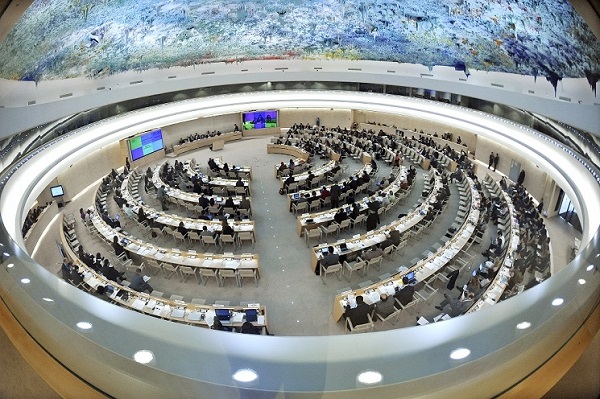Dhaka, (Samajweekly) Freedom fighters in Bangladesh have expressed displeasure and are shocked with the recent appointment of Sarah Hossain, who “defended” the convicts of the 1971 war crimes, to the United Nations’ fact-finding mission on alleged human rights violations in Iran.
Hossain, a Bangladeshi lawyer, will serve the mission as its chair with Shaheen Sardar Ali of Pakistan and Viviana Krsticevic of Argentina as two other members of the panel constituted by the UN Human Rights Council (UNHRC). The three-member panel will inquire about the “state of repression” unleashed by the Iranian government to “suppress the movement against the Hijab”.
The freedom fighters are questioning “how the UN can select someone for the mission on alleged human rights violations who had a record of defending war criminals who slaughtered and raped tens of thousands for religious absolutism”.
They argue that Hossain with her British husband David Bergman “defended and lobbied hard to save local self-confessed and convicted war criminals from Jamaat-e-Islam, some of whom are accused of committing genocide, rape and arson during the 1971 Bangladesh liberation war”.
Former Justice Shamsuddin Chowdhury Manik has termed the inclusion of Hossain, “who defended the war criminals akin to the Iranian mullahs, in the UN committee on Iran a big blunder”.
“A classic case of a double standard practised by the UN and Western countries, driving their agenda, has become evident with the inclusion of Hossain in the UN committee set up to investigate atrocities against women in Iran,” Justice Manik asserted.
Bergman and Hossain, whose father Kamal Hossain emerged as the Prime Ministerial face of the Islamist coalition before the 2018 parliament polls, have “stoutly defended the Jamaat-e-Islami and BNP leaders accused of heinous war crimes”.
Self-confessed war criminals, mostly Jamaat members are said to have poured in millions in “lobbying focused on the US and the UK policymakers to cover up their horrendous war crimes and hired journalists as well”.
Bergman defended war criminals with his blog, peddling narratives that undermine harrowing crimes, that sparked a call for his boycott by the country’s popular movement which sought justice for millions of Bengali families who waited four long decades to see the trial. Even the country’s court warned Bergman not to repeat such “malicious and prejudicial” criticism of historically settled issues.
Recently the Lemkin Institute for Genocide Prevention, a US-based institution, has recognised the brutal killings of Bangladeshis by the Pakistani forces in 1971 as a “genocide”, serving as some relief to the country’s five decades of wait for UN recognition of the worst war crimes in 100 years history.
Member of the central committee of Awami League, Tarana Halim, has also questioned the UN’s “much-coveted principle of fairness as it still put on hold the recognition of the 1971 genocide committed by Jamat Al-Badr Razakar, the auxiliary forces of Pakistan Army”.








